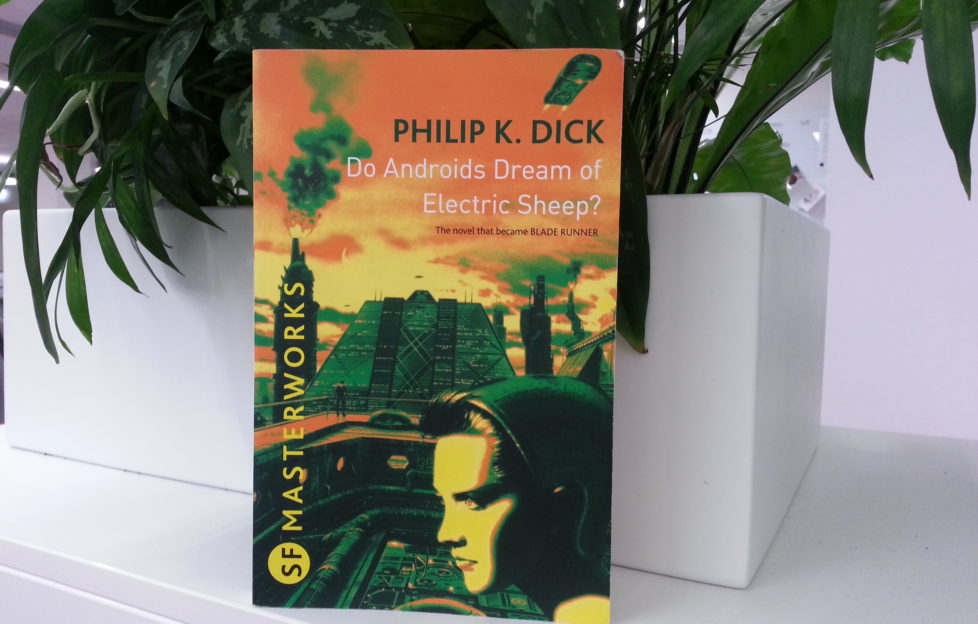Book Review: “Do Androids Dream Of Electric Sheep?”

“Do Androids Dream Of Electric Sheep?” is a thought-provoking, often intricate, science fiction novel written by American author Philip K. Dick.
The paperback is around 200 pages, and so makes for a quick read.
The story follows bounty hunter Rick Deckard, who works for the San Francisco Police Department. Deckard’s job is to “retire” replicants — androids posing as humans.
It’s a hazardous job, as some replicants are extremely dangerous.
It’s also a job that pays well. For Deckard, this means he can fulfil his dream of owning a live animal (a prestige that comes with a hefty price tag in a world populated by synthetic pets).
Written in 1968, “Do Androids Dream Of Electric Sheep?” was later adapted into Ridley Scott’s 1982 cult movie, “Blade Runner”.
I watched the film before I read the novel, so I had already built up pictures in my mind of the 3-D futuristic environment.
I pictured Harrison Ford, cast as Deckard, silhouetted against “Frisco’s” neon, wind-swept landscape.
Mind Games
However, the novel is more psychological in nature than the film.
It explores Deckard’s character — in particular how he views, and begins to question, the fragile structure of society, and his place in it.
There is no denying the novel is astutely written. It doesn’t pretend to be something it isn’t; it’s about living, or learning to live, with synthetic life.
This didn’t stop me feeling somewhat disengaged from Deckard.
The writer’s systematic style of writing complements the novel’s AI subject matter, but in my mind this hinders the reader’s connection with the characters.
Just as Deckard’s own electric sheep has an on/off switch, I think the characters in Philip K. Dick’s sci-fi world need more of an emotional trigger to give it deeper meaning.
Check out more good reads on our Book Reviews page.










